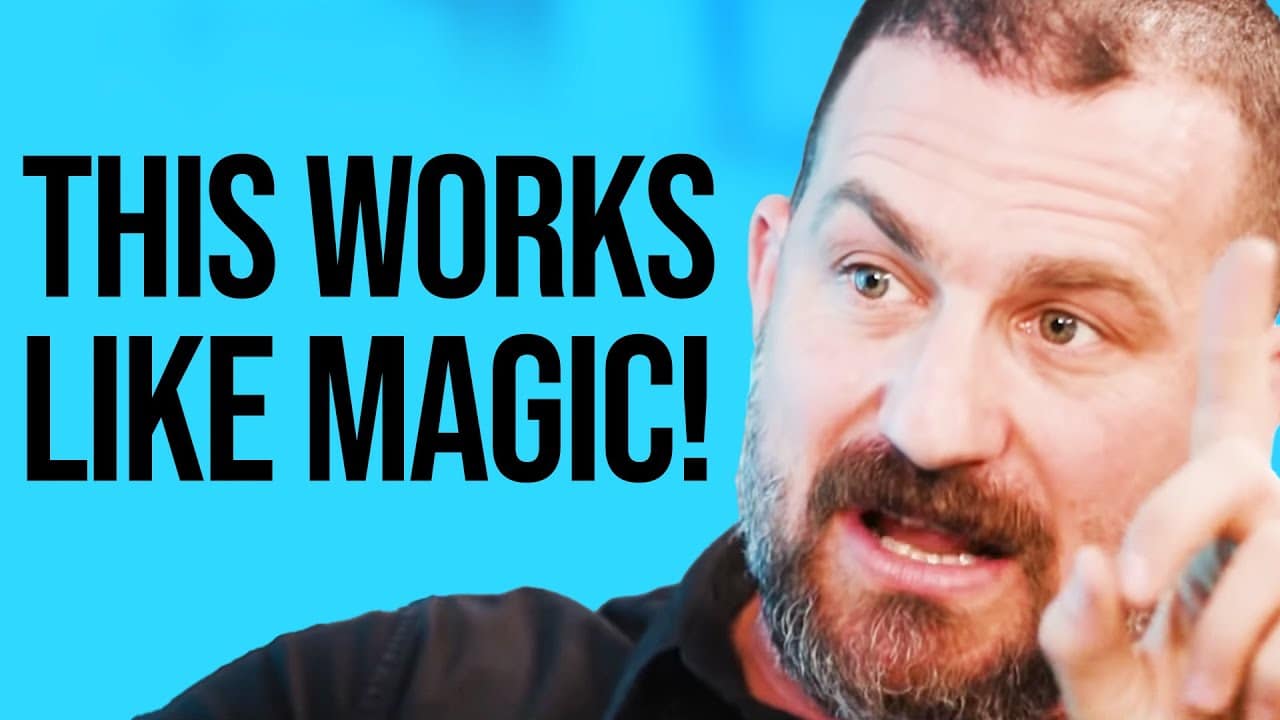*****
Summary of Transcript:
The guest in the video, Dr. Andrew Huberman, is a professor of neuroscience at Stanford University who won several awards for his work. The nervous system has five main responsibilities: sensation, perception, emotions, thoughts, and actions. The nervous system is responsible for all life experiences, from the mundane to the most awe-inspiring. The brain creates a virtual reality environment based on abstract representations of everything. The exception is the neural retina, brain tissue outside the skull responsible for sensing light events in the background to inform the rest of the nervous system.
*****
Summary of Description:
Neuroscientist Andrew Huberman discusses the science behind successful strategies for life changes on this episode of Health Theory with Tom Bilyeu. He explains that our thoughts are a choice, and the brain creates an abstract representation of everything in the world. Huberman also emphasizes celebrating small victories, unlearning negative experiences, and leaning into fear. He explains that action in pursuit of a goal stimulates neural rewards and how using hypnosis and diaphragmatic breathing can help. Andrew believes that people should always reward incremental steps toward bold action.
*****
The Science Behind Successful Strategies for Life Change
In this episode of Health Theory with Tom Bilyeu, neuroscientist Andrew Huberman elaborates on the scientific explanation behind successful strategies for life change.
The Power of Choice
The human brain creates an abstract representation of everything in the world. Ultimately, our thoughts are a choice, and we can choose where to focus our attention.
Understanding the Brain
The brain has two pieces outside the skull and spinal cord: the eyes. Viewing screens after 11 PM can suppress dopamine, which punishes the brain.
Rewards and Goal Pursuit
Action to pursue a goal stimulates neural rewards maintains dopamine reward cycles, and provides endless energy. Small victories, even incremental ones, are just as important to celebrate as larger ones, as they inevitably contribute to the big picture.
Moving Towards Fear
Achieving a forward momentum is the remedy for trauma and fear. Stress and agitation are meant to trigger action, not forms of suffering. It’s important to understand and move into negative experiences, allowing for the unlearning of negative habits and patterns and replacing them with new positive ones.
Replacing Negative Thoughts
It’s not always possible to suppress negative thoughts, but it is possible to replace them with something more positive. Always rewarding incremental steps towards bold action makes it easier to focus on the positive and work towards goals.
The Power of Hypnosis
Huberman explains how hypnosis works and its impact on the brain. By tapping into the subconscious, hypnosis can help replace negative thought patterns with positive ones.
The Power of Diaphragmatic Breathing
Slow, deep breathing, also known as diaphragmatic breathing, has been scientifically proven to be an effective way to reduce stress and anxiety. Slowing down the breathing rate stimulates the parasympathetic nervous system and can help the body relax.
One Thing to Change
When asked what one thing he would most like to see people change in their lives, Huberman emphasizes the importance of getting enough sleep. Sleep is essential for the brain to function at its best, and lack of sleep can have severe consequences.
Join Our Discord Community
Join the Discord community to stay connected with the amazing things that Tom and his team are working on. You will receive direct access to Tom and the team, exclusive content, offers, and more. Don’t miss out on the opportunity to become legendary. Jump in and get started today.
*****
Source Description
Join our Discord community so you don’t miss out on all the amazing things we are working on – http://impacttheory.com/discord. Here you will get direct access to Tom and the team PLUS exclusive content, offers, and so much more. Jump on in and get started on becoming legendary!
Celebrate small victories. Your thoughts are a choice. Move towards fear. Lean into your negative experiences. No matter what the question is, action is the answer. Meditate. Breathe deeply. Many people have assimilated these well-known concepts and mantras through experience or training. But what is the scientific explanation for why all these practices and beliefs work so well? What is happening on the level of the brain? On this episode of Health Theory with Tom Bilyeu, recognized neuroscientist Andrew Huberman details the science behind successful strategies for life change.
SHOW NOTES:
Ultimately our thoughts are a choice [1:13]
The brain creates an abstract representation of everything that’s out there in the world [4:52]
These are two pieces of your brain outside of your skull and spinal cord [7:23]
Viewing screens after 11 PM suppresses dopamine and punishes the brain [9:25]
Action in pursuit of a goal stimulates neural rewards [11:36]
Dopamine reward cycles can provide you with endless energy [14:21]
The reasons why it’s so important to celebrate small victories [16:25]
How to unlearn negative experiences [21:10]
Using lateralized eye movements while recounting negative experiences helps [25:01]
Forward movement is the remedy for trauma and fear [28:03]
Stress and agitation are meant to be triggers for action, not forms of suffering [31:31]
It’s not easy to suppress negative thoughts, but you can replace negative thoughts [34:21]
Always reward incremental steps that are about forward action [37:37]
Andrew explains hypnosis and why it works [40:08]
Andrew explains why slow, diaphragmatic breathing works so well [43:48]
Andrew shares the one thing he would have most people change in their lives [51:16]
FOLLOW ANDREW:
WEBSITE: https://hubermanlab.com
INSTAGRAM: https://bit.ly/2AEiQZr
TWITTER: https://bit.ly/2yg1NMy


Comments are closed